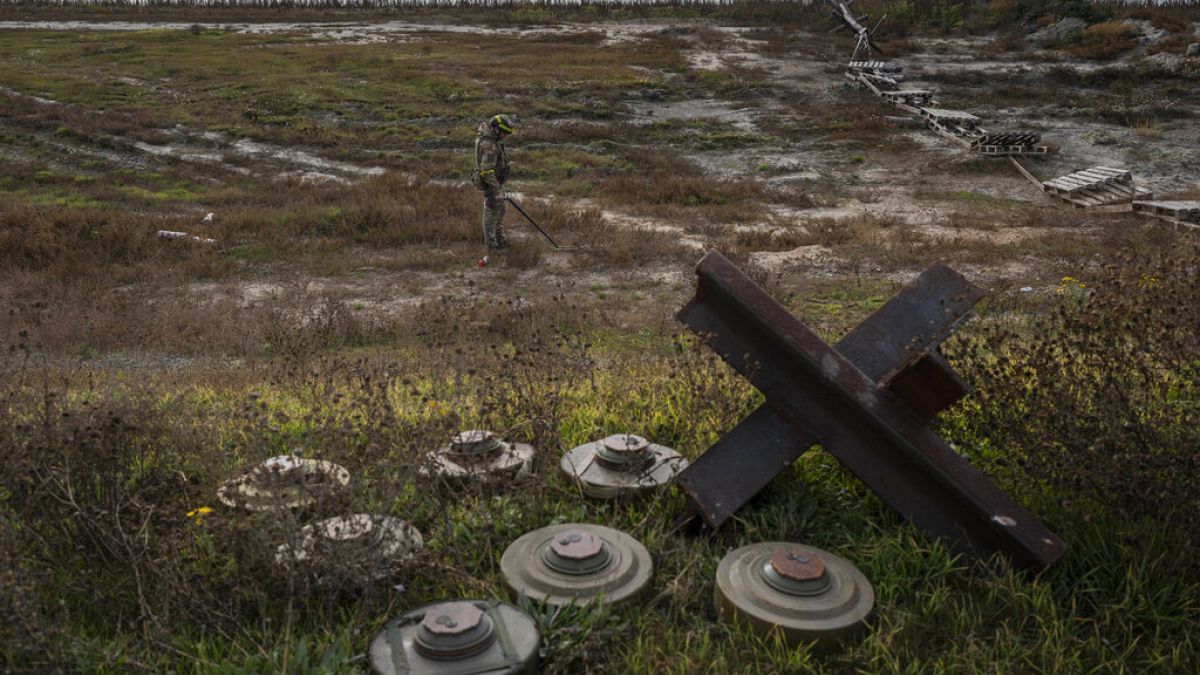

As the world continues to grapple with complex geopolitical scenarios, recent events in Ukraine, Iran, and Gaza highlight the ongoing challenges and efforts in global security and stability. These developments serve as a reminder of the delicate balance and careful diplomacy required to navigate such intricate international relations.
In Ukraine, tensions have escalated, prompting significant military actions. The Ukrainian government, led by President Volodymyr Zelenskyy, has announced its intention to withdraw from the Ottawa Convention, a treaty that bans anti-personnel mines. This decision aligns with similar actions taken by neighboring allies such as Poland, Finland, Lithuania, Latvia, and Estonia, countries that also share borders with Russia. As these nations reassess their security needs, the potential implications for regional stability are considerable. Ukraine’s strategic recalibration comes amid heightened military engagements and the use of advanced military technologies, emphasizing the country’s focus on reinforcing its national defense capabilities.
Meanwhile, the International Atomic Energy Agency (IAEA) has raised concerns regarding Iran’s nuclear capabilities. According to IAEA chief Rafael Grossi, Iran could potentially achieve the capacity to produce enriched uranium within a matter of months. This development highlights the ongoing complexities surrounding Iran’s nuclear program and underscores the importance of diplomatic dialogue to ensure compliance with international agreements. The prospect of increased uranium enrichment activities calls for renewed discussions among global powers to maintain checks on nuclear proliferation while striving for peaceful resolutions.
The situation in Gaza remains distressing as tensions between Israel and Palestine persist. Recent Israeli airstrikes have resulted in casualties, with reported fatalities among Palestinians included. According to local sources, the strikes have also targeted densely populated areas, exacerbating existing humanitarian concerns. In response, Israel has issued evacuation warnings to residents in eastern Gaza City, urging them to relocate to safer areas as they prepare for intensified military operations. This has led to a mass displacement, with tens of thousands fleeing to areas like al-Mawasi, which faces its own challenges with overcrowding and limited resources. The escalation in Gaza serves as a stark reminder of the ongoing humanitarian and political challenges that continue to afflict the region, emphasizing the need for concerted peace efforts.
Each of these developments underscores the intertwined nature of global security issues and the necessity for collaborative solutions. In Ukraine, the strategic shift highlights the region’s evolving security dynamics and the multifaceted approaches required to address threats. The situation with Iran’s nuclear program calls for sustained international attention to navigate the complexities of nuclear agreements and maintain regional stability. Meanwhile, the humanitarian situation in Gaza demands urgent attention to address immediate needs and work towards long-term peace in the region.
While these global challenges may seem daunting, they also present opportunities for renewed diplomatic engagement, collaboration, and understanding. The overarching goal remains the promotion of peace and stability, achieved through thoughtful diplomacy and concerted international efforts. As these stories unfold, the international community is reminded of its collective responsibility to foster dialogue and construct pathways towards a more peaceful world.
Source: {link}
